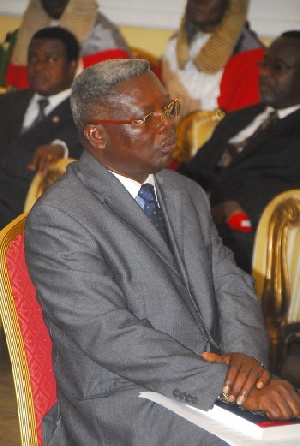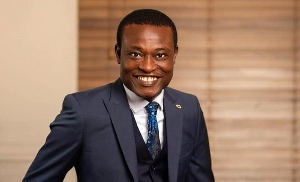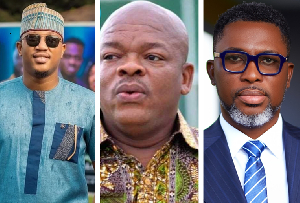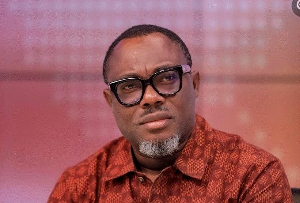The Sole-Commissioner appointed by President John Dramani Mahama to investigate the payments of judgment debts has described critics of the fact-finding commission as people “making statements grounded on mistaken premises”.
Justice Yaw Apau of the Court of Appeal said at the maiden public sitting of the commission, yesterday, in Accra, “It is important for developing an enlightened democratic culture in our society to avoid such hasty, premature and prejudiced comments and criticisms.”
Since the government announced the setting up of the commission of enquiry into the payment of judgment debt and akin, under C.I. 79, to investigate frivolous and dubious payments of huge monies to undeserving individuals and companies, there have been varied opinions, with some saying that there would be no action taken even if perpetrators are found.
But Justice Apau appeared not to be happy with the criticisms and said they were unfortunate because “none of the commentators and critics, it would appear, had made any effort to see the Constitutional Instrument itself by which the commission was established”.
He said the failure for critics to appraise themselves with facts had led to “comments and criticisms that were founded on mistaken premises”.
“It is embarrassing and confusing to the public when such unfounded and premature comments come from politicians, even more so, when they emanate from lawyers who are supposed to know and understand better our constitution which forms the foundation of every act or omission in this country,” he added.
He said that in order to allay what he called “fears, anxieties, misunderstandings which might have been created in the country on account of such early unfortunate comments and criticisms”, he found it “expedient and duty bound at this very first sitting of the commission to enlighten the public on the purpose and aim of its creation”.
Justice Apau noted that the whole judgement debt puzzle was sparked off by revelations made in the Auditor General’s annual report to Parliament with regard to certain payments made to some individuals and companies, tagged as judgment debts, between 2009 and 2011.
“Since this revelation came into the public domain, a lot of debate and discussions have been held by all shades of minds on the matter, not to mention the accusations and counter accusations that have been made by several people, mostly politicians from all political divides, civil society, social commentators and the public against all manner of persons including some current and formers Ministers of state, public servants for their alleged involvement in the said payments which many Ghanaians find very untoward and disturbing.”
He said it was in reaction to the general confusion and the apprehension that the government was trying to cover up the misdeeds of its ministers and public servants involved in the alleged outrageous payments that the president established the commission to unearth the facts about the payments.
He stated that the commission’s mandate was to “ascertain the causes of any inordinate payments made from public funds in satisfaction of judgement debts since the 1992 Constitution came into force”.
Justice Apau said the commission was also to “ascertain the causes of any inordinate payments made from public funds and financial losses arising from arbitration awards, negotiated settlements and akin processes since the 1992 Constitution came into force”.
He stated that the commission was mandated to make recommendations to the government to ensure that as far as practicable, the instances of judgment debts were limited and also that the government did not incur undue financial loss when it did business with the private sector.
The judge said the commissioner’s mandate would not conflict with the statutory duties of all state institutions including EOCO, the police, among others, mandated to conduct investigations into such issues, as well as the Public Accounts Committee of Parliament and the courts.
“This means that some of the notions in both the print and electronic media to the effect that this commission was established to either kill, whitewash or review the criminal cases or other civil cases involving the payments of various amounts to some persons and institutions which are already in court, are unfounded and quiet unfortunate.”
He said the existence of the commission could not stop the state from taking civil action to recover any public money which the state had found to have been wrongly paid out to anybody or company.
He urged everybody with information to volunteer to ensure that the commission was able to complete its work and added that so far, there had been responses from a lot of people who were willing to testify or volunteer information.
General News of Friday, 30 November 2012
Source: Daily Guide

















